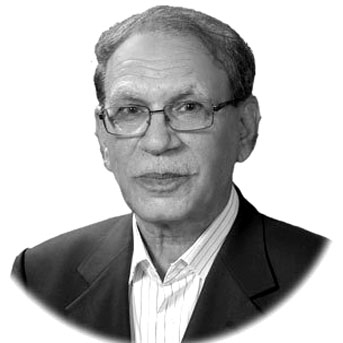Mohammad Jamil
THE publication of the modified map by India im mediately after the so-called reorganisation of Jammu and Kashmir is a provocative step, which has been rejected by Pakistan, China and Nepal. The Pakistan government rejected the new map issued by New Delhi which showed the entire Kashmir region as its territory, describing them as ‘incorrect and legally untenable”. The fresh maps were released after the Indian government divided the territory into Jammu and Kashmir and Ladakh as part of India. Pakistan Foreign Office made a statement saying that Islamabad rejected these political maps which were incompatible with the United Nations’ maps. It added that no move by India could change the disputed status of Jammu and Kashmir which has been recognized by the UN. India’s expansionist intention has manifested itself in another dangerous move of formally annexing Indian-held Kashmir. The fresh map blatantly identifies Azad Kashmir as well as certain areas of Gilgit-Baltistan as an Indian territory. The implication of the new map is bound to create a strong public response amongst Kashmiris when the complete denial of their rights for self-determination for the Kashmiris is now confirmed by India’s actions. India’s new political map has stirred controversy in Nepal also, with both New Delhi and Kathmandu laying claim to a region, known as Kalapani, as part of their countries’ territory. “The Nepal government firmly believes that the Kalapani is a part of Nepal,” Nepal’s Ministry of Foreign Affairs said in a statement. Nepal’s opposition parties protested in the capital Kathmandu as well as other parts of the country, accusing India of illegally occupying its land. Beijing, which claims parts of Ladakh on behalf of Tibet and still occupies some territory seized during its 1962 skirmishes with India, publicly objected to the new arrangements. Malaysian Prime Minister Mahathir Mohammed in his speech in the United Nations General Assembly (UNGA) remarked that India had “invaded and occupied Jammu and Kashmir.” Turkish President Recep Tayyip Erdogan also accused the international community of having failed to pay enough attention to the Kashmir issue. “In order for the Kashmiri people to look at a safe future together with their Pakistani and Indian neighbors, it is imperative to solve the problem through dialogue and on the basis of justice and equity, but not through collision,” he said during his address at the UNGA. Malaysia and Turkey were the Muslim countries that stood by Pakistan despite their business interests with India. Other members of the OIC seem to have given overriding consideration to economic interests over taking a principled stand following into the footsteps of the US and the western countries.
It is worth mentioning that in March this year China destroyed nearly 30,000 maps of India produced within the country because they depicted Arunachal Pradesh as part of India. Again in April 2019, China in the course of its second Belt and Road Initiative (BRI) Summit, removed maps showing Jammu and Kashmir and Arunachal Pradesh as part of India from the BRI website. Kashmir is an unfinished agenda of partition and is inseparable from Pakistan. While we wish peace and stability in the region, we want a just resolution for Kashmir in the light of UN resolutions, to bring lasting peace in the region. However, Kashmir dispute is very much there on UN agenda. However, India has been against third-party mediation or external involvement in the region including the UNMOGIP that was set up in 1949. Earlier, India continued harping the tune that it is a bilateral issue and should be resolved through bilateral talks. After revoking Articles 370 and 35-A of the Indian Constitution that gave special status to Jammu and Kashmir, the final Assam citizens’ list was released, leaving out more than 1.9 million Muslims. In August 2018, the controversy on preparing a registry of bona fide citizens of Assam on the basis of legal documents was further fuelled by BJP President Amit Shah who described illegal Bangladesh immigrants as “termites” eating into Indian resources. After the abolition of Article 370 of the Constitution, ten other states: Arunachal Pradesh, Assam, Himachal Pradesh, Manipur, Meghalaya, Mizoram, Nagaland, Sikkim, Tripura and Uttarakhand that enjoy special category distrust the Indian Government because of Modi’s actions. It has to be mentioned that special category status was granted to them by the National Development Council on the recommendations of the Planning Commission to states that needed special consideration. But Modi is on collision course.
Indian hatred and animosity against the Kashmiri Muslims is deep-seated and its reflections can clearly be seen through Indian repressive tactics including torture, extra-judicial killings, rape and fake encounters by Indian Security Forces in the IoK that continue unabated. The aim is to deter Kashmiris from demanding their right of self-determination. The repression, oppression and atrocities committed by Indian forces have turned Kashmir into a hell that would stretch Dante’s imagination reflected in his famous poem Divine Comedy. However, these acts could not break the will of Kashmiris. The heroic struggle waged by the people of Kashmir is unparalleled in history; they are committed to continue their struggle till their objective is achieved. It has to be said that no solution can be found without participation and consensus of the people of Kashmir, as despite brutalities of the Indian police and military, Kashmiris stand tall and refuse to bend.
—The writer is a senior journalist based in Lahore.









